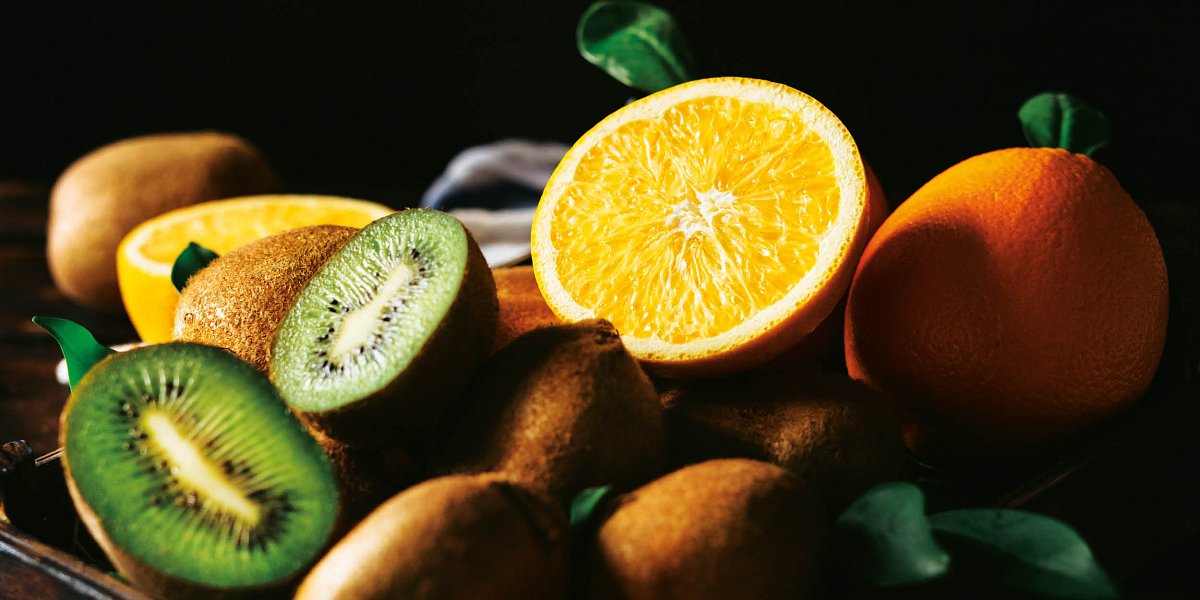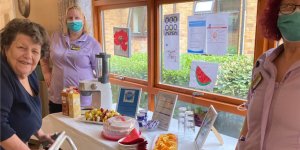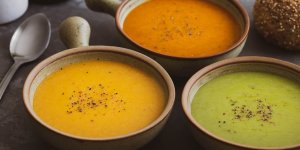Column: Give your menus a winter vitamin boost
Signature Senior Lifestyle’s head of nutrition and hydration and NACC member Sophie Murray talks us through the key vitamins residents will need this winter

It’s fast approaching the time of year when there are many festive events involving food and drink, which can be a wonderful opportunity to maximise nutrition and try new foods. With a little planning, we can tweak a menu, drink or snack here and there which will help support our immune systems through the winter months. Although many of us can recite the key vitamins and minerals needed in winter, here is a little refresher of the ones our immune system needs in particular, plus a few other things to think about.
There are many needs to consider in care homes, above the basic requirement for a healthy balanced diet – some residents may be underweight and undernourished, diabetic, needing a texture modified diet due to dysphagia, obese and wishing to lose weight or constipated due to lack of fibre or at risk of dehydration. It is also believed that a Western diet, high in refined sugar and red meat and low in fruits and vegetables, can promote disturbances in healthy intestinal microorganisms, resulting in chronic inflammation of the gut. That’s a lot of considerations - but it can be achieved with planning and good procurement choices.
It's not just the vitamins and minerals we need to take in. We also need to help our army of microbes, including bacteria. This microbiome has trillions of microbes that live in our bodies, mostly in the intestines which plays a key role in immune function. The gut is a major site of immune activity and the production of antimicrobial proteins and the diet plays a large role in determining what kinds of microbes live in our intestines, along with stress and lifestyle factors. Without bacteria, for example, the lining of the gut fails to develop properly and does not renew itself as often.
A high-fibre, plant-rich diet with plenty of fruits, vegetables, whole grains and legumes appears to support the growth and maintenance of beneficial microbes. Some foods that contain live bacteria can also boost it greatly, such as fermented foods and live yoghurts.
The key vitamins and minerals needed for the immune system also include vitamin C, zinc and vitamin D. Vitamin C can be obtained from many yellow and orange fruits and vegetables as well as broccoli, bell peppers, kale and kiwi.

Sophie Murray
Zinc is found mainly in animal products, such as red meat and dairy produce. Nuts and beans also contain zinc – baked beans for breakfast is a good option, for example, as are winter milk-based drinks.
Vitamin D is a little different. We cannot consume enough from foods and drinks unless we have a very planned diet with targeted vitamin D-fortified products. Many people should be able to get enough vitamin D in summer months by getting sufficient exposure to sunlight if they are outside at key sunny times. Going out in middle of the day for at least 15 minutes (after applying sunscreen) enables your body to make enough vitamin D, but being outdoors can be more difficult for those in care homes or those who cannot, or choose not to, go outside in these key times.
Some people with vitamin D deficiency or insufficiency show no symptoms. A simple blood test can be done to check vitamin D levels although this is rarely done, especially if there are no single obvious symptoms. Supplementation is recommended instead and quality does matter. Vitamin D3 (found in egg yolk and oily fish) raises levels of vitamin D in the blood more than D2 (found in some plants).
Back to Christmas planning – let’s start with vitamin D. You may choose to offer supplementation with prerequisite screening. If you use the food route, adding dairy-based milk powder will boost vitamin D levels and can be cleverly added into drinks, baking and soups. It can also boost protein intake which can benefit those needing to gain muscle back or gain weight. This can impact positively if the consumption is often enough and high enough. One hundred grams a day, or three servings, will meet 92% of the requirement – that’s three milky drinks either cold or hot, or two milky drinks and a fortified cake or scone. Boosting milk (by adding skimmed milk powder) to have with cereal or made in porridge can also be a great way to start the day and can enable a portion to be offered.
Vitamin C intake for a healthy adult is recommended to be 40mcg. It can be offered by offering freshly-squeezed oranges at breakfast (two oranges) and keeping the skin on white potatoes. Orange, kiwi and strawberry fruit salad would offer good levels too. If avoiding strawberries to be more seasonal, pre-prepared frozen strawberries could be used and made into a coulis instead.
Zinc is mainly found in animal produce. It is found in plant-based foods such as legumes and some vegetables but they may not be such good choices if they also contain phytates as phytates bind to minerals including zinc before they get the chance to be absorbed in the gut. Red meat, turkey, whole milk and cheese are good sources and usually readily-available in menus. Eggs can be so versatile and a good source, while there is some zinc in pumpkin seeds and porridge (though this also contains phytates). There is also half the daily intake of zinc in 100g of skimmed milk powder.
In summary, dairy-based skimmed milk powder is a good addition to recipes and drinks over the winter in combination with fresh kiwi and orange salad at breakfast to give that little extra boost to the immune system.








